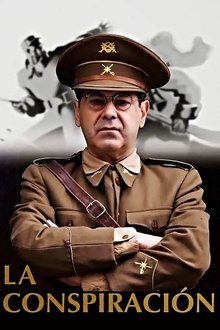Revolutionaries passed before the streets of the 1960s on the road to democracy. Then the youth with the victory songs, the workers with the rebel flags, the rightists, the leftists and the putschists again. The country spent 12 years in the grip of the revolution and in the end all roads came to the same crossroads. Ankara was restless in the minutes when the ousted prime minister of the Democratic Party, Adnan Menderes, was hanged. The news of Menderes' execution had not yet come. There was an anxious wait in the houses. Ears were on the radio. Everyone was wondering what happened in Imrali. In the Assembly, the National Unity Committee was in a meeting. They were also trying to learn the fate of Menderes. Suddenly, news came that EP Chairperson Ragıp Gümüşpala and Secretary General Şinasi Osman wanted to meet with the committee urgently. The committee members did not break the request of their former commander Gümüşpala and made an appointment for 14:30...
Related Movies
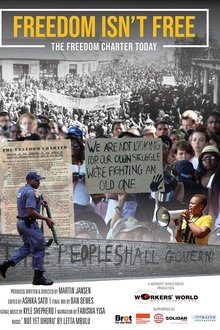
Freedom Isn't Free — The Freedom Charter Today (2018)
Since its adoption in June 1955 by the Congress movement, the Freedom Charter has been the key political document that acted as a beacon and source of inspiration in the liberation struggle against Apartheid. It was reputedly the main source that informed democratic South Africa’s liberal constitution and a constant reference point for the ruling African National Congress (ANC) and rival political parties that it spawned since 1994, all claiming the Freedom Charter’s legacy. Freedom Isn’t Free assesses the history and role of the charter, especially in relation to key political and socio-economic aspects of developments in South Africa up to the present period. It includes rare archival footage with interviews of a cross-section of outspoken influential South Africans.
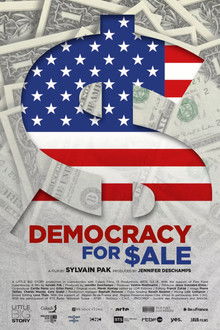
Democracy for $ale (2020)
In the United States of America, lobbyists, corporations and billionaires invest millions of dollars to ensure that a suitable candidate, one inclined to support their personal ambitions and economic projects, wins an election, which inevitably affects everything, from the selection of local officials to presidential elections, creates countless conflicts of interest and undermines what supposedly used to be a model democracy.

Haymatloz - Exil in der Türkei (2016)
″Haymatloz″ tells the stories of five German Jewish academics who emigrated to Turkey in the 1930s, to be welcomed with open arms. After 1933 a considerable number of German intellectuals emigrated to Turkey at the invitation of Atatürk and went on to definitively shape teaching and instruction in Turkish universities. Turkish-born filmmaker Önsöz accompanies the descendants of these German exiles and sheds light on a memorable piece of history whose meaning is still felt to this day, as these renowned Germans played a substantial role in the Europeanization of Turkey.

Gallipoli (1981)
As World War I rages, brave and youthful Australians Archy and Frank—both agile runners—become friends and enlist in the Australian and New Zealand Army Corps together. They later find themselves part of the Dardanelles Campaign on the Gallipoli peninsula, a brutal eight-month conflict which pit the British and their allies against the Ottoman Empire and left over 500,000 men dead.

The Corporation (2003)
Since the late 18th century American legal decision that the business corporation organizational model is legally a person, it has become a dominant economic, political and social force around the globe. This film takes an in-depth psychological examination of the organization model through various case studies. What the study illustrates is that in the its behaviour, this type of "person" typically acts like a dangerously destructive psychopath without conscience. Furthermore, we see the profound threat this psychopath has for our world and our future, but also how the people with courage, intelligence and determination can do to stop it.
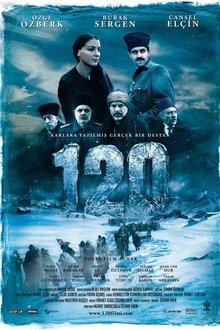
120 (2008)
During the Sarikamis Battle, the Ottoman army runs out of ammunition and appeals to the people of Van for help, who happen to have supplies. However, the First World War is on and all men are fighting at four corners of the empire and therefore can not respond to to the appeal. The young children of Van want to do something...

Daraya: A Library Under Bombs (2018)
At the heart of the Syrian civil war, a group of activists created an underground library in the besieged outskirts of Damascus. After years of blockade, they were forced to leave their city. But they managed to save their videos illustrating a unique experiment of cultural resistance under the bombs. This film, built between the past and the present, follows the story of three friends who met during the 2011 revolution and never gave up on their cultural resistance and peaceful struggle. Despite ceaseless bombing, they not only saved books from the rubble, but created a secret library, which quickly became a safe haven for peace, freedom and democracy: a special experience that they filmed and documented meticulously. Separated by war and exile, they are striving to reunite with each other. They reminisce on the past and tell us the extraordinary story of the library, based on dozens of hours of video archives. “A Library Under Bombs” is a story of hope and survival.
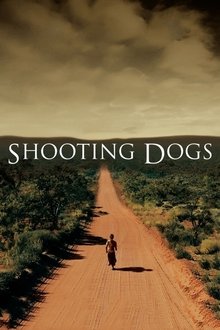
Shooting Dogs (2006)
Two westerners, a priest and a teacher find themselves in the middle of the Rwandan genocide and face a moral dilemna. Do they place themselves in danger and protect the refugees, or escape the country with their lives? Based on a true story.

It Started with Trees – Revolt in the Gezi Park (2013)
Protesters diary from Gezi Park - Taksim Square, Istanbul. Occupy Gezi movement started when the government decided to build shopping mall in place of the last green area that remained in the middle of Taksim Square.

A Whistle comes from far away (2016)
For centuries the people of a village in the Blacksea coast of Turkey and the surrounding area have used whistling to communicate. The custom is a true form of language, but unfortunately was starting to die out. This documentary shows how “Uncle” Orhan, one of the more elderly villagers, has kept the age-old tradition alive by teaching the whistling language to local children.

The Lark Farm (2007)
The Lark Farm is set in a small Turkish town in 1915. It deals with the genocide of Armenians, looking closely at the fortunes, or rather, misfortunes of one wealthy Armenian family.
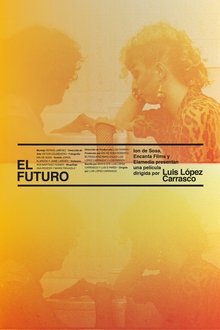
The Future (2013)
Back to the Future, Spain 1982: at a euphoric party, young people celebrate the election victory of the Socialist Party. López Carrasco stages the past with stunning precision and shows the future as a surprising result: well, the present.
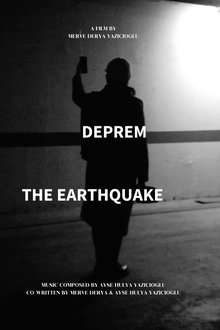
THE EARTHQUAKE (2023)
An experimental short film about the Earthquake, that is still ongoing in Turkey.
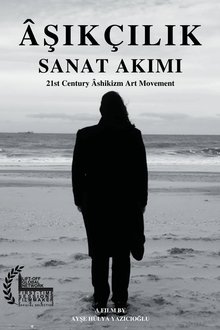
21st Century Âshikizm Art Movement (2022)
The sound of centuries-old Adhan in Turkey, the sound of centuries-old church bells and the polyphonic music of Europe echo in our memory. Our traditions and our future determine our present. In the present tense, the sounds of the war's sirens are mixed with the sound of Adhan and church bells. How can people hear themselves? How can humans exist?
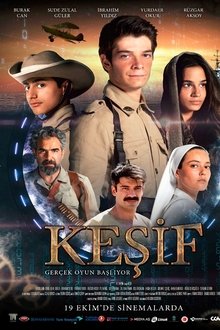
Keşif (2018)
Esma, Berk and Hasan are three people who try to escape the troubles of life with the help of a video game called Discovery. These three young people is sucked into the game in a mystical way. They find themselves in the battle of Gallipoli.
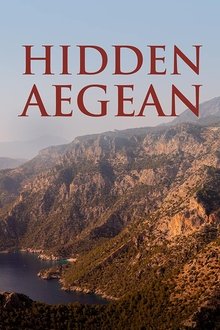
Hidden Aegean (2023)
Host Peter Greenberg explores the hidden gems of Turkey's Aegean coast. Some of the stunning destinations include Bodrum, Izmir and the ancient city of Troy.

Democracy Is ... (2009)
The film is a controversy on democracy. Is our society really democratic? Can everyone be part of it? Or is the act of being part in democracy dependent to the access on technology, progression or any resources of information, as philosophers like Paul Virilio or Jean Baudrillard already claimed?
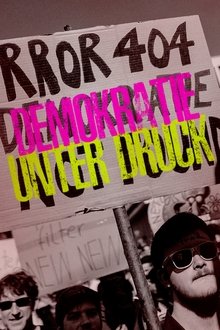
Demokratie unter Druck – Europa vor der Wahl (2019)
Thoughts of a diversity of public and private citizens on the virtues of democracy, its faults, its decadence, its fall and the rise of populism.

The Take (2004)
In suburban Buenos Aires, thirty unemployed ceramics workers walk into their idle factory, roll out sleeping mats and refuse to leave. All they want is to re-start the silent machines. But this simple act - the take - has the power to turn the globalization debate on its head. Armed only with slingshots and an abiding faith in shop-floor democracy, the workers face off against the bosses, bankers and a whole system that sees their beloved factories as nothing more than scrap metal for sale.
